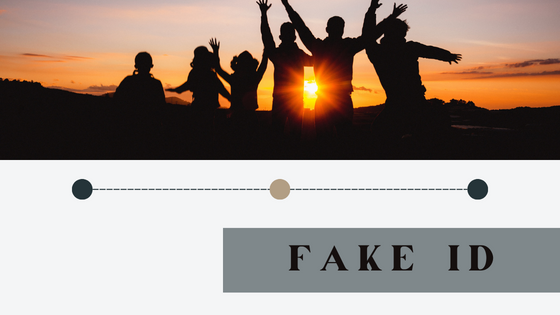
The acquisition and use of fake identification cards (IDs) is a significant issue that extends well beyond youthful rebellion or pursuit of adult privileges. For many young people, a fake ID might seem like a golden ticket to freedom, but the underlying dangers and long-term consequences associated with their use are starker than they may realize.
Immediate Legal Consequences
Firstly, the legal implications of fake ID use are severe. Most jurisdictions classify possession, creation or use of a counterfeit ID as a criminal offense, with potential charges ranging from misdemeanors to felonies. Penalties can include hefty fines, community service, or even incarceration.
Long-Term Legal Consequences
Moreover, once established, a permanent criminal record can have lasting implications. A conviction could impair future job prospects, as most employers conduct a background check and may hesitate to hire someone with a criminal history. It could also cause obstacles when applying for a professional license, or for further education, where admissions offices often take applicants’ criminal history into account.
Identity Theft and Personal Safety
The process of acquiring a fake ID itself often involves submitting personal information, including photos, names, addresses, and even sometimes social security numbers, to unregulated, illicit operations. This exposes individuals to the substantial risk of identity theft. Furthermore, visiting questionable online platforms or meeting with shady operators presents potential personal safety risks that should not be overlooked. It is easy to find fake ID sites by typing something like “Best website to get a fake id” into Google.

Unintentional Fraud
With a fake ID often comes the lure of making adult purchases, such as opening a bank account or buying a car. However, these actions can lead to unintentional fraud, where legal agreements made under a false identity can lead to serious fraud charges.
Moral and Ethical Implications
Lastly, but certainly not least, using a fake ID presents significant moral and ethical challenges. Deceitful actions can lead to a breakdown in trust among family members, teachers, and employers, impairing important relationships. Additionally, the habit of bending rules and flouting law can set a dangerous precedent for one’s character development and future decision-making.
Conclusion
While the allure of early access to ‘adult’ privileges can make fake IDs seem appealing, the potential dangers and long-term consequences cannot be understated. What may seem like a harmless transgression or a practical joke can result in lifelong penalties and regrets.
Education, conversation, and providing knowledge about the risks involved can be the first step towards dissuading young people from acquiring and using fake IDs. It serves as a reminder that reaching adulthood and its associated privileges is a journey that can’t be bypassed without potential repercussions. The risks involved with fake IDs simply aren’t worth cutting corners on this rite of passage.


